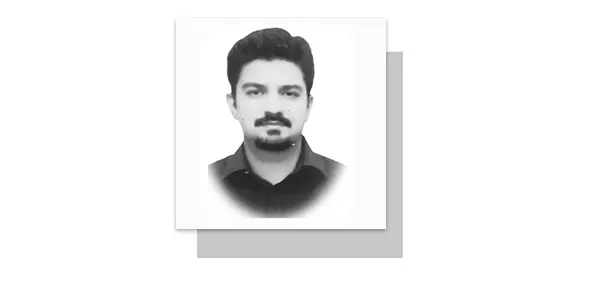IN recent developments at Islamia University Bahawalpur, a shocking racket of university faculty members and administrative officers has been exposed, sending shockwaves through Pakistan’s education system. Thousands of female students’ privacy has been compromised, as objectionable pictures and videos were discovered in the phones of staff members. This deeply disturbing incident has raised serious questions about the prevalent culture within the university and the state of education in Pakistan.
Beyond the appalling invasion of privacy, even more troubling revelations have emerged. The university campus has become a hub for the trafficking and sale of illicit drugs such as ice (methamphetamine), heroin, cannabis and alcohol. It is disheartening to witness such heinous crimes occurring within an educational institution. However, we must acknowledge that these events are not isolated incidents; they are symptoms of a broader malaise that has permeated university culture for far too long.
Sexual harassment, exploitation and drug (ab-)use have become an unfortunate part of the university experience for many students. Regrettably, this toxic culture has existed for years, intertwined with violence, arms and ammunition. The authorities, including the police, politicians and the feudal elite, have at times shielded such activities, allowing them to flourish with impunity.
As an educator with a decade of experience, I am deeply pained to witness the erosion of educational values and ethical standards within our institutions. The pursuit of good grades at any cost has overshadowed the essence of true learning. Instead of fostering research-based growth and innovation, universities have become degree mills, focusing solely on securing jobs for graduates. The lack of a robust research culture hinders the country’s progress and limits the potential for scientific breakthrough and entrepreneurial ventures.
Universities worldwide play a critical role in driving economic and societal advancement through research and innovation. Unfortunately, Pakistan seems to have lost sight of this crucial mission. The focus on learning real-life skills and fostering innovation has taken a backseat to the race for degrees and employment.
A disconcerting trend has emerged, where some students pay fraudulent individuals to write their thesis and complete their final year projects. This pervasive academic dishonesty not only devalues the degrees earned but also perpetuates a culture of deceit and mediocrity.
It is time for us to acknowledge the gravity of this situation and take bold steps to reform our education system. Addressing this issue requires a collective effort from educational authorities, policymakers and society at large.
- Implementing Strict Accountability: University administrations must conduct thorough investigations into such misconduct and hold those responsible accountable, regardless of their positions.
- Creating Safe Spaces: Establishing effective mechanisms to address complaints of harassment and exploitation, ensuring students’ safety and well-being.
- Promoting Research and Innovation: Encouraging a research-centric environment within universities, providing incentives for faculty and students to engage in meaningful research.
- Revamping Curricula: Introducing relevant and up-to-date curricula that focus on practical skills, critical thinking and problem-solving, equipping students for real-world challenges.
- Raising Awareness: Launching awareness campaigns to educate students about the consequences of academic dishonesty, unethical practices and drug abuse.
In redefining our education system, we can nurture a generation of scientists and entrepreneurs who will lead Pakistan’s progress. It is time to reclaim the true purpose of education and create an environment that empowers students to dream, innovate and contribute meaningfully to society.
The recent revelations at Islamia University Bahawalpur should serve as a wake-up call for all stakeholders. It is a collective responsibility to instil integrity, ethics and a thirst for knowledge within our educational institutions. Only then can we hope to build a brighter future for our students and our nation.
—The writer is Associate Professor of Public Health, Al-Shifa School of Public Health, based in Rawalpindi.
Email: [email protected]










